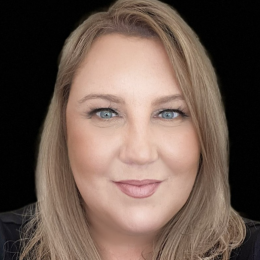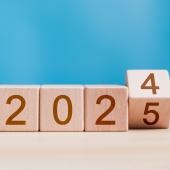Banner artwork Natali _ Mis / Shutterstock.com
The international and local landscape of rules for preventing discrimination in the workplace as well as social initiatives to ensure equal treatment in the workforce continue despite recent backlash on formal diversity, equity, and inclusion (DEI) programs. For smaller companies or smaller legal departments, it may be challenging to meet these goals solely looking from within; however, leveraging outside vendors with credentialed programs can be a step in the direction of incorporating diverse talent and thought. This is particularly true for international companies where regulations surrounding concepts of equality can vary greatly from location to location.
One way to ensure your outside counsel is aligned with your objectives is to engage firms that have earned Mansfield Rule certification from Diversity Lab, an incubator specializing in innovative solutions that boost inclusion in the law.
What is a Mansfield certified firm?
“Mansfield is a structured certification process designed to ensure that all talent at participating law firms have a fair and equal opportunity to advance into leadership,” says Alyssa Jarvis, Diversity Lab’s director of Mansfield and Strategic Innovations. “It’s focused on broadening the talent pool for consideration, including those historically underrepresented in the legal profession, and facilitating transparent pathways to leadership.” The program is rooted in a behavioral science approach that helps disrupt implicit bias.
Founded in 2017, with 35 large firms participating in the first year, Mansfield has expanded to include mid-sized firms (with 25 to 150 lawyers), legal departments in the United States and Canada, and firms in the United Kingdom. All told, more than 350 firms and 80 legal departments are participating in the initiative. More than 300 firms have earned Mansfield certification to date, including more than 130 mid-sized firms since that category was established in 2020.
More than 350 firms and 80 legal departments are participating in the initiative.
“It was an easy decision to pursue Mansfield certification, once it opened to mid-sized firms,” says Keiko Sugisaka, partner and firm chair at Maslon, the Meritas member firm in Minneapolis, Minnesota. “The process is a reflection of our values as a firm in being welcoming and inclusive; investing in our human capital; finding, hiring, and retaining the best talent so we can provide the best service to our clients, and being leaders in our community.”
What to know about the Mansfield certification process
As part of Mansfield, at least 30 percent of candidates considered for leadership opportunities must be from historically underrepresented groups — including women lawyers, underrepresented racial and ethnic lawyers, LGBTQ+ lawyers, lawyers with disabilities, and, for UK firms, lawyers from lower socioeconomic backgrounds. They are also expected to increase transparency by defining and documenting leadership role descriptions and election and appointment guidelines and processes; share knowledge and build community with other law firms, including through knowledge-sharing calls and contributing to Diversity Lab’s resource library; and demonstrate accountability through check-in meetings, pulse surveys, and an end-of-period report.
After the first year, firms are encouraged to continue the annual certification process. “The full benefits of Mansfield only truly unfold long-term, with repetition and persistence over time,” Jarvis says. “Through continued recertification, firms build on their progress.” The process for recertification is the same as the initial certification, with additional benchmarks or categories to ensure forward progress.
Mansfield certified firms continue their commitment in the face of DEI backlash
There has been a politically driven backlash against DEI in recent years, with more than 30 states introducing, considering, or passing bills that limit or ban DEI initiatives. Supreme Court rulings in 2023 and 2024 have also complicated the landscape. These developments have led some corporations and law firms to reduce their DEI staffs and programs. Other organizations continue to rely on the same techniques as before, to ensure a welcoming workplace, while not labeling these initiatives as “DEI.”
“The hundreds of firms and legal departments participating in the Mansfield certification process have continued their progress despite these political headwinds,” says Jarvis. “Mansfield was built by lawyers and is facilitated in accordance with all applicable laws. It is meant to expand opportunities, not limit or decrease them. The focus is on opening the door wider and ensuring that opportunities for advancement are inclusive for everyone. And the outcomes data proves it is succeeding at its intended purpose to create inclusive talent practices and, ultimately, to diversify leadership.”
A diverse and inclusive workforce results in better decision making, aids in recruitment and retention, and ensures a broad client base — all of which help companies and firms thrive.

Mansfield-certified law firms still value the importance of a diverse and inclusive work environment.
AtlasStudio / Shutterstock.com
Maslon has been a leader in DEI among mid-sized firms, but the Mansfield certification pushed it even further. “We convened a working group of key stakeholders to come up with formal processes and tracking,” Sugisaka says. “It was another way to ingrain DEI throughout the firm as part of our culture and values. And, from a practical standpoint, Mansfield certification was extremely helpful in moving us from informal to structured tracking in a way that was sustainable in our firm’s existing processes, and providing more transparency and accountability for our DEI efforts.”
And, from a practical standpoint, Mansfield certification was extremely helpful in moving us from informal to structured tracking in a way that was sustainable in our firm's existing processes, and providing more transparency and accountability for our DEI efforts.
Sugisaka notes that certain clients are looking for certified firms. “But even without client requirements, studies show that diverse teams perform better than non-diverse teams,” she says. “In addition, if you have a significant litigation practice like we do, diverse trial teams can present a client’s story with broader appeal and more easily connect with and be effective with jurors.”
Mansfield certification is available to larger in-house legal departments
In-house legal departments may seek certification following a process similar to firms, with a few exceptions. It is a two-year certification process, for example, instead of one year as for firms, and legal departments are asked to track the consideration of lawyers from their outside counsel teams as well as their internal hiring and promotions.
“Legal departments have told us that going through the Mansfield process has helped with the retention of lawyers and the recruitment of high-level talent who see the legal department as invested in their future success,” says Lisa Kirby, president of Inclusive Talent Systems at Diversity Lab. “It helps position them as innovative leaders who are adding value to their organization’s culture and to its talent processes. It also shows their outside counsel that they are willing to “walk the walk” on inclusion, making firms more willing to partner on increasing inclusion across their client teams.”
In-house counsel who want to find Mansfield-certified firms can visit the Diversity Lab website, which lists all the certified firms and those currently in the program. They should also stay tuned for Diversity Lab’s Diverse Leadership Directory, launching in fall 2024, which features partners from Mansfield law firms.




